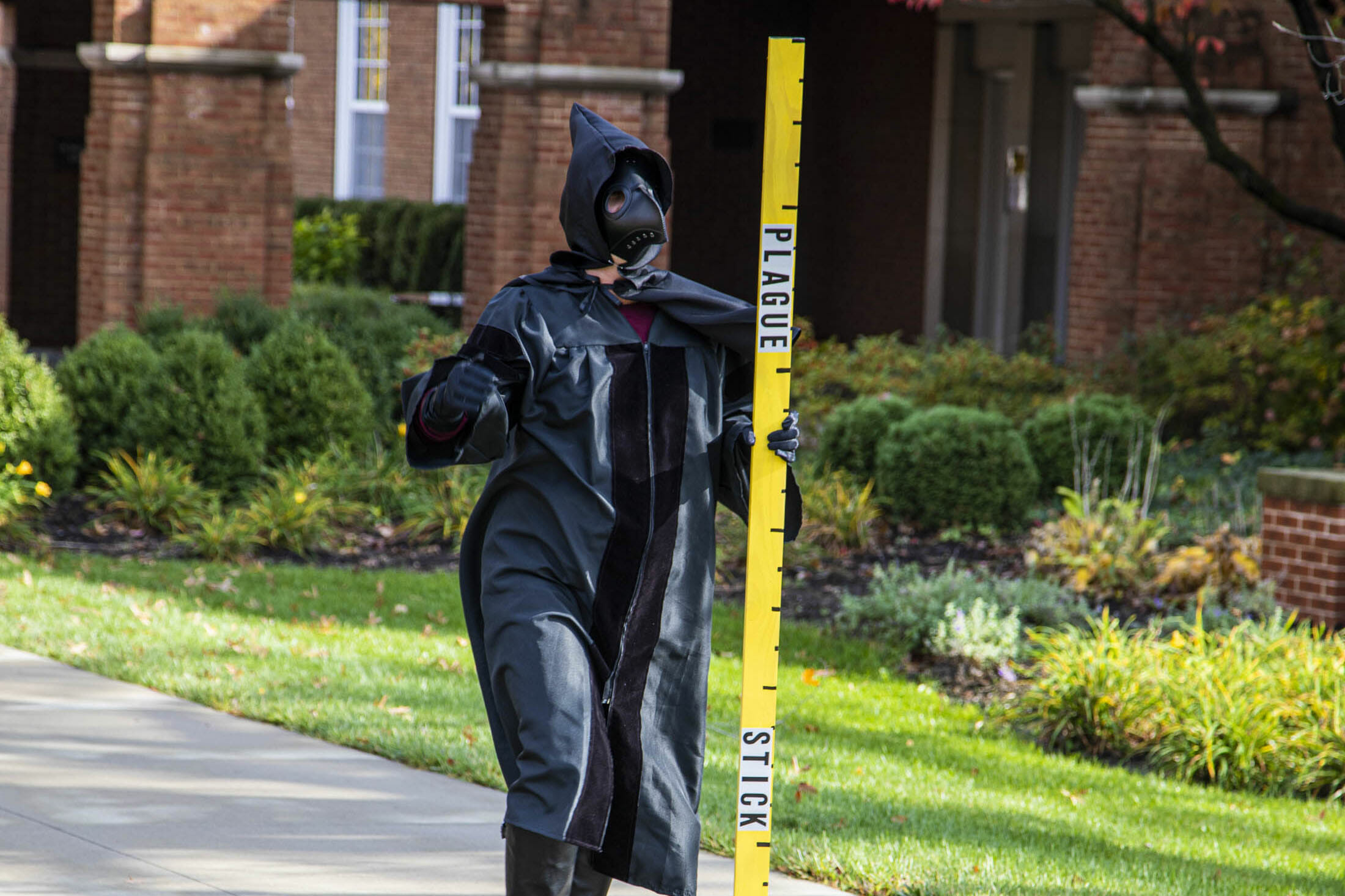I first encountered the word “anonymous” in my kindergarten yearbook. I thought the seniors at my school walked astride our world like gods, and I studied the section of the book that honored them. Quotations accompanied their portraits. “‘What lies behind us and what lies before us are tiny matters compared to what lies within us.’ – Anonymous.” “‘Do what you can today for tomorrow it may be too late.’ – Anonymous.” Who was this “Anonymous”? It was a weighty name. I imagined a robed philosopher holding forth with wisdom in some ancient place.
’Tis the season of anonymity, I suppose. Tomorrow evening will find millions of American children hiding in plain sight as they make their rounds and, here in St. Louis, tell jokes for candy. The lead-up to Halloween this week at MICDS has included a senior class parade on Thursday and a Beasley parade this morning, and this evening our Upper School drama students will be hosting a Halloween drive-through on campus. In sympathy with yesterday’s costumed seniors, Dr. Tanya Roth, who teaches in our history department, came to school as a head-to-toe Plague doctor with a six-foot ruler accessory (“for social distancing,” I was assured) and a long beak-like mask that hid her face. She showed up in my office at around 2:00 p.m. as quiet and as still as the Grim Reaper, and I just about had a heart attack.
Next week, too, will entail sanctioned anonymity in the form of secret-ballot voting on Tuesday. The fact that voters who have not already mailed in their ballots will be exercising their constitutional right behind masks will only further the sense of prevailing identity erasure on that day—and indeed, one might observe that the “season of anonymity” in 2020 includes not only this late October and early November period, but most of the calendar year. When even our phones cannot recognize us behind the ubiquitous “mitigation measures” that pull at our ears, what chance do our eyes have? In a typical year, the standard response to a friendly “Hello!” is a friendly “Hello!” back. In 2020, the standard response is “Who is that?”
My remarks to our Middle and Upper School students earlier this week included the expectation that we not “categorize each other and define each other by our differences” at MICDS, but that we see each other “as complex and beautiful human beings who move forward together in community with one another.” By definition, we cannot see each other when we are anonymous. We cannot be in community with one another when we are anonymous. Where discourse and dialogue are not objectives, anonymity can have its place; where privacy is necessary, it must. In conversations that aspire to further understanding and growth, however—conversations that are essential to our work as a school—to be named and known is essential. I save every letter and every email that I receive as Head of School except for the anonymous ones. I cannot be in discourse or dialogue with a person without a name.
In the climax of Arthur Miller’s The Crucible, the character John Proctor signs his name to a false confession but then refuses to hand the document to his prosecutors. “Explain to me why you will not,” demands one. “Because it is my name!” Proctor replies. “Because I cannot have another in my life!” Perhaps it is Halloween that puts me in mind of The Crucible and the Salem witch trials that haunt that play—’tis the season—but Proctor’s assertion is nevertheless a timeless one. As I observed to our Middle and Upper School students on Monday, the “vision of treating human beings as creatures to be categorized, monitored, and manipulated…is directly opposed to our common project at MICDS.” To categorize is to depersonalize, to efface as efficiently as a mask. We must resist both engagement in and submission to anonymizing and anonymity in our community. We must know one another—and be known—by each of our unique and precious names at MICDS. We must declare and defend them as priceless, and help each other declare and defend them. We cannot have another in our life.
Always reason, always compassion, always courage. I wish you a very happy weekend.
Jay Rainey
Head of School
This week’s edition of “How to Prepare for the Election Without Thinking About the Election”: Visit the United Way’s Volunteer Center website to find opportunities to help others in the weeks ahead.
This week’s addition to the “Refrains for Rams” playlist: Superstition by Stevie Wonder. “Very superstitious, / Nothin‘ more to say.” Happy Halloween! 🎃 (Apple Music / Spotify)
